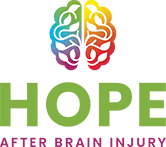Studies continue to link traumatic brain injury and the possibility of autoimmune disease. Yet, even with extraordinary medical advancements in our society, conversations between patients and many health professionals are still elusive on brain injury health outcomes. Slow medical research and a lack of knowledge, training, and awareness for traumatic brain injuries among many healthcare academic programs still plague our global health system each day. In recent years progress shows a better understanding of brain injury health conditions is gradually coming to light.

Autoimmune diseases of various types are often the base subject for associated genetics, ethnicity, gender, and environmental susceptibility. However, a brain injury or repeated sub-concussive hits to the head can contribute enough inflammatory conditions to launch an ongoing cytokine storm, inadvertently causing the body’s internal workings to attack itself. As far back as 2013, the discussion “Published in journal PLOS ONE by the University of Rochester Medical Center and the Cleveland Clinic, the research suggests a new way of thinking about concussions: That the brain degeneration observed among professional football players (including the much-publicized chronic traumatic encephalopathy) could result from an out-of-control immune response, similar to what multiple sclerosis patients experience.”
Immune Response After Brain Injury
After a traumatic brain injury, genetic activation, pituitary dysfunction, hormone imbalances, significant food intolerance’s, and chronic digestive problems can occur. An immediate breach of the blood-brain barrier after an injury can result in a rapid autoimmune response. In addition, delayed symptoms from a brain injury can point to the slow development of autoimmune issues.
Laboratory tests for autoimmunity can fluctuate, and symptoms of autoimmune disease can come and go striking similarities to many other brain injury-related health conditions. Negative testing for common autoimmune diseases may leave patients and their doctors in a conflicted state of frustration with no definitive diagnosis other than the patient’s history of traumatic brain injury. Understanding patient health history and genetics could point to the vulnerabilities they may have had before their head injury, which could have pushed their potential for specific health conditions into the spotlight.
The onset of autoimmune symptoms can be associated with trauma. Conditions such as Lupus, Multiple Sclerosis, or other similar autoimmune reactions after brain injury mean self-advocacy is imperative to quality and longevity of life. There is hope! Self-advocating for nutritional guidance, reducing chronic inflammation, carrying out a safe exercise program, and supporting healthy lifestyle choices to help manage stress are topics worth discussing with TBI-trained health professionals.

Leave A Comment
You must be logged in to post a comment.